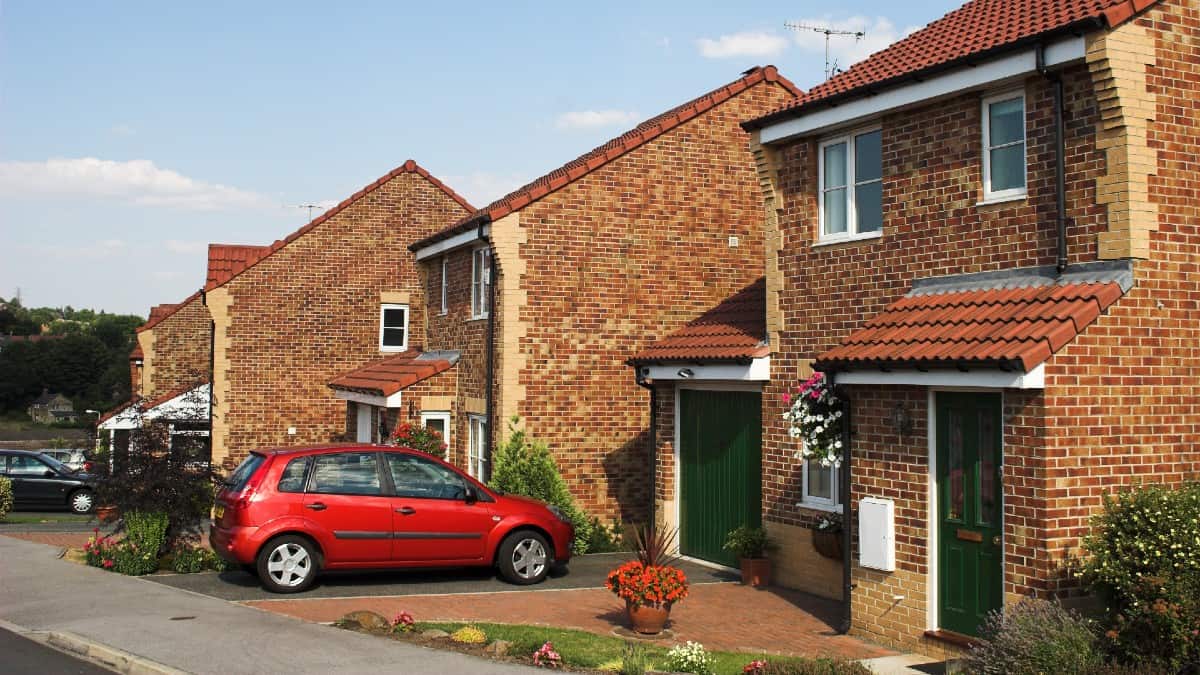UK housing shares have fallen across the board. There is widespread fear in the housing market, with many headlines pointing out that prices are declining at record rates. However, there are specific companies that I choose to be greedy about while others are panicking.
Is the housing market going to crash?
First, it’s important to note that housing prices are still higher than they were before the pandemic. Stimuluses and low interest rates artificially inflated housing demand. What we are seeing right now should be described more as a correction rather than an Armageddon of the housing market.
One factor that will continue to drive housing prices is the shortage of homes. The UK has built the fewest residentials in Europe since the 1980s, and the British spend the most on housing out of any other OECD (Organisation for Economic Co-operation and Development) country. Furthermore, real wage growth is now outpacing inflation and should provide a strong backbone to the market.
Should you invest £1,000 in Bodycote Plc right now?
When investing expert Mark Rogers has a stock tip, it can pay to listen. After all, the flagship Motley Fool Share Advisor newsletter he has run for nearly a decade has provided thousands of paying members with top stock recommendations from the UK and US markets. And right now, Mark thinks there are 6 standout stocks that investors should consider buying. Want to see if Bodycote Plc made the list?
Therefore, companies that can take advantage of this crisis are UK housebuilders. House building has slowed down even more due to interest rates and falling housing prices. As a result, those that dominate the sector have become powerful because they own massive scores of undeveloped lands and control the housing supply. Subsequently, parliament continues to debate deregulation and subsidies to support housebuilders and solve the housing shortage.
Berkeley Group Holdings
One of the major housebuilders in the UK is Berkeley Group Holdings (LSE: BKG), which is still down over 25% from its peak in 2020 and 8% from earlier this year. It’s mainly a residential property developer and builder in London, Birmingham, and the South of England. It recently became the largest new house builder in London.
What’s significant is that the value of the land owned by Berkeley is worth over £3bn. That’s almost three quarters of its market capitalisation. It has a price-to-book ratio of just 1.28, meaning investors are barely valuing it over what its assets are worth.
Revenue and free cash flow have decreased since pre-pandemic. However, it’s to be expected that Berkeley Group couldn’t build as many homes due to pandemic restrictions and has delayed new construction in the face of high interest rates and a tough real estate market.
However, there are three things that make Berkeley Group attractive to me. First, its price-to-book ratio is near its 10-year low. Second, revenue for Berkeley is sure to pick up as housing is a necessity that needs to be filled. With a huge backlog of houses waiting to be built, revenue has a lot more room to grow. Finally, though Berkeley’s dividend yield hasn’t been consistent, it has ranged from 1.96% to a respectable 7.32% in the past nine years.
| Year | Average Yield |
| 2023 | 1.96% |
| 2022 | 6.99% |
| 2021 | 5.82% |
| 2020 | 2.80% |
| 2019 | 1.99% |
| 2018 | 2.91% |
| 2017 | 5.27% |
| 2016 | 7.32% |
| 2015 | 5.98% |
| 2014 | 1.56% |
While I wait for house building to inevitably pick up and increase the stock price, I can also get a decent return through dividends.
Conclusion
Overall, I see housebuilder stocks as an attractive investment due to the inevitability of their rebound. The UK economy will not be able to function if housing prices remain this elevated, and support for private house building is one of the main ways to increase supply. Therefore, by buying shares in Berkeley Group soon, I believe I’d be safely capitalising on the fear in the housing market.








